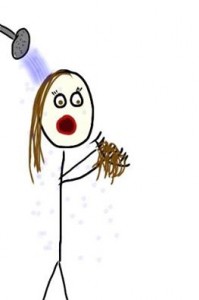Your body breaks down carbohydrates and converts them into energy. They’re absorbed quickly into your bloodstream and shuttled around your body for fuel and repair. Amongst other things, carbohydrates are used to convert protein into the cells that form your hair.
Carbohydrates are important because they provide energy, and being the second fastest-growing cells in your body, your hair cells need a lot of energy to grow. However, because hair is a non-essential tissue its needs are not prioritised and a deficit of carbohydartes is likely to show up first in the form of excessive hair shedding.
If your diet lacks complex carbohydrates, your body may also start to convert stored proteins, like muscle, into energy. This can be taxing on your kidneys and liver, and can cause various problems, including hair loss. Complex carbohydrates (i.e. whole grains) are best for your hair and body.
They are better at maintaining cell energy levels than simple carbohydrates (i.e. pastries and cakes), as they give you a slower and more sustained release of energy. Sugar-loaded simple carbohydrates can raise and then drop your energy levels quickly and can also lead to obesity and diabetes when eaten in excess.
This is why you often get a ‘high’ after eating sugary foods and then find you crash and become tired. While everyone should eat a serving of complex carbohydrates with each meal, if you excercise you will need to increase your intake! Talk to your GP or nutritionist about the best way to do so.
Energy to your hair cells drops 4 hours after eating a meal, so snack on a complex carb between meals to help keep levels sustained.
My Top Healthy Carbohydrates;
Whole grain toast
Whole grain cereal
Bulgar wheat
Baked beans
Peas Jacket potatoes (with the skin)
Parsnips
Barley
Oatmeal
Brown rice or pasta
Fresh fruit (i.e. apples, pears and bananas)
Legumes



